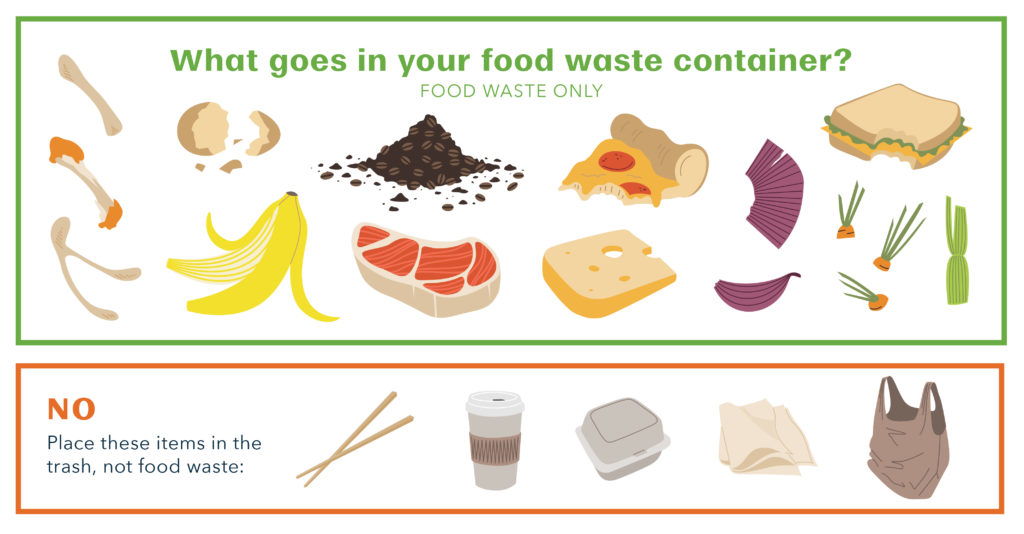It is so enjoyable to use your electric food waste composter, not only to get rid of unwanted organic material but also to feel like you are helping the environment and reducing pollution at the same time. We all want to be more eco-friendly and this is one great way to do so, but it is important to use your composter correctly so that it will work quickly, efficiently, and for longer. Here we will have a look at some of the top dos and don’ts for your food waste composter to help you on your way to a better-smelling and greener future today.

How does an electric composter work?
Firstly let’s have a look at how this fantastic machine works. Mimicking the human digestive system, food scraps are placed inside along with micro-organisms that act as digesters. They break down the food into organic fertilizer in just 24 hours, and once you have added the microbes they self-replicate so it is a cycle that keeps going by itself. This means that you really are cutting down on your waste, creating something that can be used to help grow more food and plants, and doing so in a sustainable way.
What CAN go in your Composter?
So many of the things that you use and have leftover each day can go in your electric food waste composter getting rid of unwanted products quickly and easily. Here are some of the types of food waste that you can and should recycle this way creating rich and useful fertiliser to be used again:
- Eggshell – not every food recycling or composting machine can take eggshells but your TMK food waste composter can.
- Animal Waste – again not every machine can but a small amount of dog, cat, or other animal waste is fine, and cat litter will also be recycled if it is the organic type.
- Coffee Grounds – a popular drink in so many parts of the world being able to recycle your used coffee grounds can make your favourite beverage taste even better knowing you aren’t creating extra rubbish.
- Tea Leaves – similarly tea is consumed by so many people in countries everywhere and this can also be consumed and transformed by your composter – just make sure to empty your tea bags into the composter and dispose of the paper bag in your regular trash as they will not break down easily.
- Most Raw Food Waste – anything from potato peel to leftover vegetables can be digested and turned to compost without hassle, though it is important to avoid extra hard peels like mangosteen. For fruit peels, consider slicing them into smaller pieces to make the digestion process easier.
Some fish products like river prawn shells – really hard and thick shells wouldn’t work but as long as it isn’t too tough your composter can even deal with some of these.
From your everyday leftovers to garden and animal waste, so much of what you throw out could be composted and gotten rid of in an eco-friendly way so why not give it a try?

What CAN’T go in your TMK Composter?
Just as important as what you can compost is what you should avoid placing in your electric food waste composter. Sometimes it is because the items just won’t break down right while in other cases it could cause harm to the micro-organisms inside that do the breaking down for you. Here are a few of the top things to leave out to keep your composter running smoothly:
- Liquids – while you are fine with coffee grounds or tea bags, the drinks themselves as well as water, soups, juices, and sauces are bad for your composter. They slow the process of composting down to a crawl and reduce the efficiency of the machine. Avoid putting in any liquids at all (i.e., drain waste products).
- Hard Objects – as mentioned above some skins and peels are too hard, like mangosteen and durian rind. Shells, bone, and corn cob are also too hard and won’t quickly break down in the time frame that the other items you place inside will. You should leave out objects like these altogether.
- Oily Foods – once again a lot of oily foods will not break down right and won’t be absorbed into the general fertiliser like plants and other types of food waste will. Butter, oil, cream, instant beverage powdered beverages (Milo / Ovaltine), and coconut milk will all sit somewhat separately and should be avoided.
- Very Rotten Foods – again these can mess with the composting process and interfere with your new fertiliser so it is better to put your surplus food in as soon as you can.
- Tissue paper, uncut morning glory & banana leaves used for wrapping foods, long string and rubber bands – all of these do not break down the same way as food, and in some cases have chemicals and other products in them that could harm your organic fertiliser and make it less useful.

Conclusion
In general, as long as you remember to avoid these few hard or wet and oily items that shouldn’t go into your electric food waste composter you can put in and reuse so many things that you would otherwise chuck away each day.
However, just remember that different items will take longer than others to decompose. For example, orange peel will take more time to degrade than cooked rice. Bigger items will take longer than smaller items. So it is a good idea not to add items that will take a longer time to decompose if you wish to use the compost soon. Another good idea is to put some compost in a zip lock bag and keep it under the sink or under the stairs, for example, to give the compost a little more time to break down and decompose correctly.
By composting you are not only getting rid of this waste but doing so in a way that is good for the environment, good for your garden, and will leave you feeling great as well.
